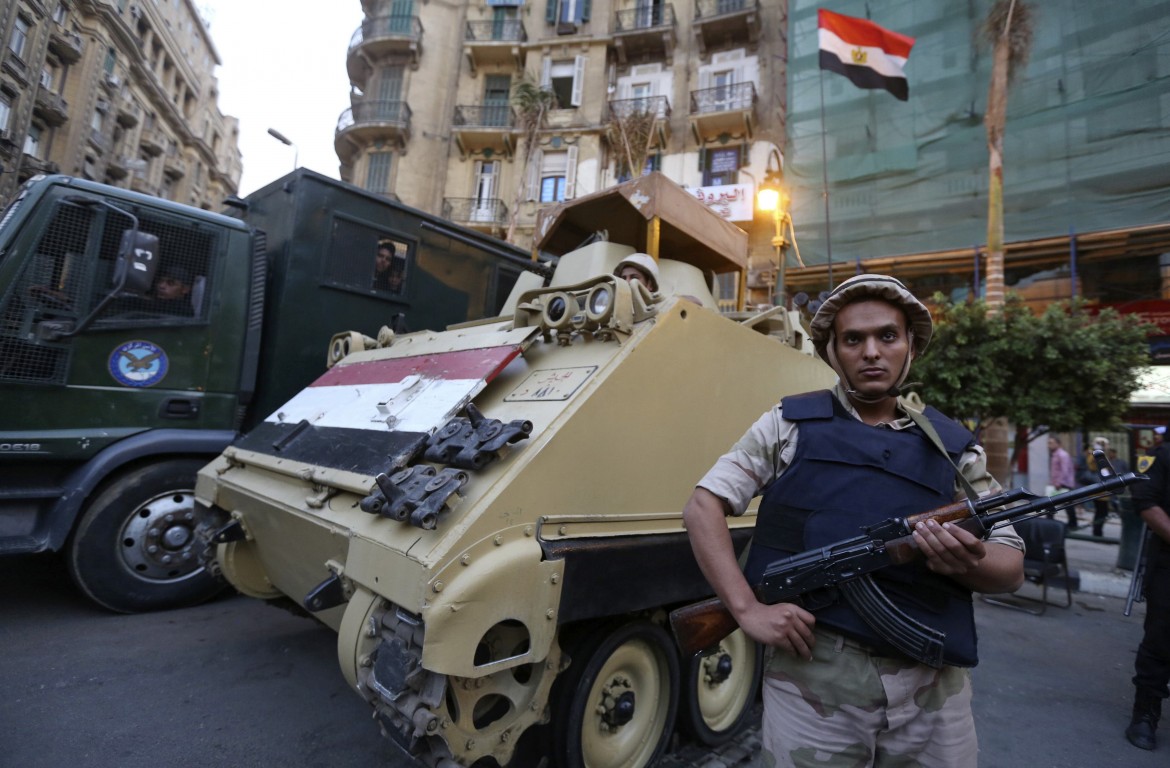Commentary
The return of the generals through violence and capital
In the former Arab spring countries, the armed forces have transformed into a part of the capitalist class, pulling their countries closer to Western powers.

In an editorial published in this newspaper a few weeks ago, Alberto Negri drew our attention to what he called the “springtime of the generals pleasing to the West.”
This expression seems particularly fitting because it captures two important transformations that have occurred in the Middle East in recent years. First of all, it helps shed light on the failure of the revolutionary wave experienced by (almost) the entire region, starting with the popular revolts in Tunisia and Egypt between 2010 and 2011. The total success of the reactionary forces has assumed the character of a marked militarization of political and social life.
There are many readily available examples of this: the Saudi military intervention in Bahrain to protect the small Gulf monarchy, the long civil war in Syria, the ongoing conflict in Yemen, General Haftar’s recent advance toward Tripoli in Libya, and el-Sisi’s military dictatorship in Egypt following the July 2013 coup. One can also see the massacre of protesters by the army in Sudan two weeks ago and the unquestioned central role assumed by the armed forces in Algeria in the current revolutionary phase as further confirmation of this trend.
Second, the generals who have regained power in the Middle East—whether de jure or de facto—are showing a notable proximity to Western powers, which marks an evident break with the dominant attitude in the first few decades after decolonization. It was during that phase—also because of the weakness of the local bourgeois class—that the armed forces took over the leadership in many Middle Eastern republics, driving the processes of modernization and industrialization that aimed to transform the various countries into autonomous centers of capitalist accumulation, and thus to break their dependency on Western powers.
This leads us to immediately ask ourselves: what are the reasons for which the grand return of the generals onto the political scene in the Middle East is being accompanied today by their apparent subordination to the interests of the major capitalist countries?
The main reason lies in the gradual transformation of the Middle Eastern armed forces into a part of the capitalist class. In this sense, the generals are not only the ultimate custodians of coercive power, but are now also among the owners of the means of production. In this regard, the Egyptian case is paradigmatic for a trend which seems to characterize the entire region of the Middle East. We will thus focus on this phenomenon for its explanatory value.
The decline of the political importance of the military in Egypt since the ‘70s was counterbalanced (in order to prevent any coup attempts by members of the armed forces) by the explicit promotion on the part of the regime of economic activities which were directly controlled by the armed forces.
The army’s transformation into an economic player at the highest level took place for the most part under the leadership of Field Marshal Abd al-Halim Abu Ghazala, who served as Defense Minister from 1981 to 1989. During this phase, many military factories built in the previous decades were converted to civilian production, and, over a short period of time, they managed to enter (almost) all the sectors of the Egyptian economy.
Then, the subsequent privatizations during the ‘90s and the first decade of the 21st century opened up additional opportunities for the Egyptian armed forces, which have developed significant partnerships with transnational capital, often coming from the Gulf countries.
On the eve of the coming revolution, the protection of the interests of this armed bourgeoisie took the form of ensuring the preservation of two main conditions: the sale via secure and privileged channels of relatively modest-quality products which would be unlikely to command their own market in a more competitive environment, and the use of a docile workforce, working for very low wages, largely consisting of the men who were being forced to spend up to three years as military draftees. Because of this, the military part of the capitalist class was not only in fundamental conflict with the demands of the revolution, but even with the mere notion of civilian control over the military sphere.
With the exception of Tunisia, a similar situation has tended to develop in all Middle Eastern countries, although with different levels of intensity. The conflict that has arisen is therefore not one between “dictatorship” and “democracy.” On the contrary: precisely because of the fact that democracy is unable to emerge because of the generals’ material interests, the real alternatives are, once again, the classical ones: socialism or barbarism.
To clarify: the revolutions in Sudan and Algeria can be successful only if the push coming from the lower classes produces a break in the ranks of the army, resulting in the disintegration of the state apparatuses. However, if this occurs, the revolutions will have already abandoned their bourgeois character, thus entering the realm of the socialist ones.
Originally published at https://ilmanifesto.it/il-ritorno-dei-generali-in-medio-oriente-tra-violenza-e-capitale/ on 2019-06-18
